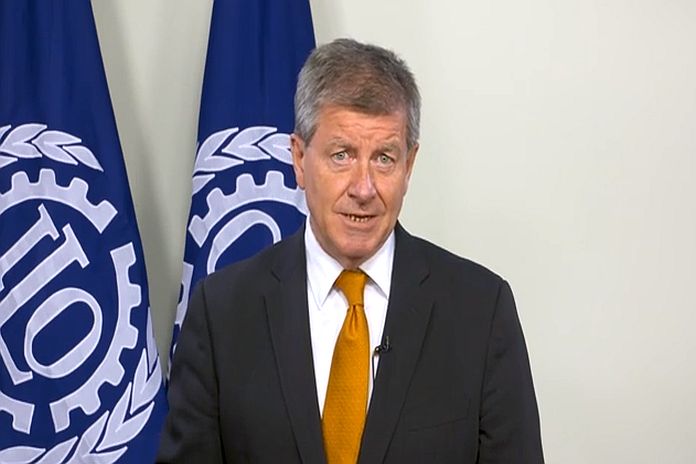ILO Director-General, Guy Ryder, underlines the importance of looking after our mental health at a time when stresses are rising because of the COVID-19 pandemic.
GENEVA, Switzerland — The COVID-19 pandemic has changed our lives in ways we never imagined. All around us people are suffering. And we don’t know what the future will bring. Everyone is asking questions. How many more jobs will be lost? When are we going to get back to normal? What will be the new normal? For many workers the questions are even more pressing: How am I going to make ends meet? How am I going to feed my family?
In these extraordinarily stressful circumstances, we mark World Mental Health Day under the theme Mental Health for all. Greater Investment – Greater Access. Everyone, everywhere.
These past few months many workers have felt helpless in the face of the profound changes they have experienced. Teleworking has brought new stresses, as workers find themselves isolated or juggling family and professional responsibilities while experiencing blurred lines between their work lives and personal lives. Those who cannot telework have felt unjustly exposed to the risks of the pandemic, with all the anxiety it has brought.

As our world continues to grapple with this crisis, it is crucial that we shed light on the mental health risks that will no doubt persist past this pandemic.
So what can we do? We need to talk openly about mental health in the workplace and reduce stigma and discrimination for those who are less able to cope: young people, who don’t see a future for themselves, older workers who fear they might never find a job again, women, who have to bear the brunt of the economic downturn, front line workers who feel they haven’t been supported enough.
At the country level, governments must continue to invest in social protection and take extra supportive measures to ensure the mental health of vulnerable disadvantaged groups. At the international level, wealthier nations should support low- and lower-middle-income countries in which a large proportion of the citizens have no protection at all.
For many of us, work is an essential part of who we are. Making sure that the workplace is a safe environment where we can talk about mental health issues will help mitigate the impact of the pandemic in our personal and professional lives and make us more resilient.
We all have a role to play by caring for and supporting family, friends and work colleagues, by continuing looking after our own well-being and by not being afraid to talk and to seek help when needed.





